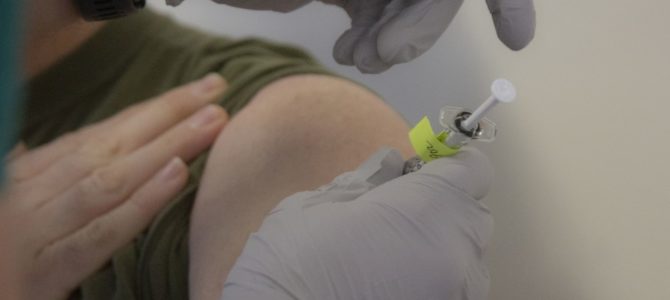
A very popular point the “experts” and certain cable news anchors like to make when discussing COVID vaccines is that to go unvaccinated is akin to driving while drunk. It’s a clever-sounding argument but the fact that Leana Wen repeated it this week should be a clue that it’s actually not very smart after all.
To be fair, Wen is the same person who wrote at length just weeks ago that even people who have COVID antibodies, which so far as we can tell, function the same way as the vaccine (and possibly better), should get vaccinated anyway, simply because she said so. Persuasion isn’t her strong suit.
But let’s think the drunk driving argument through. Wen, who is a college health professor you might recognize from CNN (kidding, I know you don’t watch CNN), co-wrote a piece Wednesday for the Washington Post making the analogy with Sam Wang, a neuroscience professor.
“Some might balk at this comparison, but here are the similarities,” they said. “Both causes of severe bodily harm are largely preventable — covid-19 through vaccination, and drunken driving by not driving after drinking alcohol. Both are individual decisions with societal consequences.”
Fair enough. They went on to say that going unvaccinated and drunk driving are similar in that “the risk is borne not only by the person making the decision but also by others who cross their path.” Additionally, they noted, even though the vaccine is not 100 percent effective in preventing severe illness or death, the more people who have it, the less transmission there is, and thus the fewer deaths there are. Likewise, the more people who choose not to drive intoxicated, the safer everyone on the road.
But there’s a gaping hole. Wen and Wang are only looking at the analogy from the view of the person who declines to receive a vaccine or, by comparison, who drunk drives. Remember: We’re All In This Together™️ and there are other perspectives to consider. Namely, the fully vaccinated people who choose to leave their homes and, similarly, commuters who choose to drive on the road.
A person who is vaccinated, according to the experts, has every reason to feel safe from severe illness, hospitalization and death from COVID. The latest available data from the Centers for Disease Control And Prevention says 14,115 fully vaccinated people have been hospitalized or died from the virus as of Sept. 7. That represents 0.03 percent of the almost 42 million infection cases reported in the U.S.
But 0.03 percent isn’t zero. Some people will in fact be hospitalized or succumb fully to the virus, despite having received a vaccine. With that information, a vaccinated person would have to decide whether or not he was comfortable going to a concert with hundreds of strangers or a bar where other people may very well infect him. The likelihood is infinitesimal, but he could die.
In that same vein, a person who chooses not to drink but still drive can be reasonably sure that he is safe when he puts on his seatbelt and follows the rules of the road. But odds are, he has seen a car accident before. He may have even experienced one that wasn’t his fault. Maybe two or three of them. He can do everything right to avoid a collision but the fact remains that other drivers are out of his control and he could become a victim of their mistakes or poor decisions.
Even removing the drunk-driver factor, getting in a car always involves a risk assessment. It’s safer to drive during the day than at night. According to the National Safety Council, the vast majority of highway traffic occurs during the day and yet nighttime car accidents make up half of all accidents. A lot of that is because of visibility impairment. Inclement weather means even more risk.
Plenty of people who drive and are sober get in accidents on clear days with other people who haven’t been drinking at all. It happens.
People who drive hopefully know all of this information. Yet, they still determine that the odds are, if they drive cautiously, they will be okay.
This is true even as drunk driving is against the law. People still drink and then get behind the wheel. We know that and we deal with it.
I’m personally indifferent to why anyone chooses not to receive a vaccine. That’s because I know what my risk level is and I can plan accordingly, just as if I were to need to drive to a convenience store at midnight. More drunk driving happens between 12 a.m. and 3 a.m. but, hey, I want the ice cream.
If the experts want to use the drunk driving analogy on the issue of vaccination, fine. But it only works if they ignore that individual risk assessment and personal responsibility are the overriding factors.









